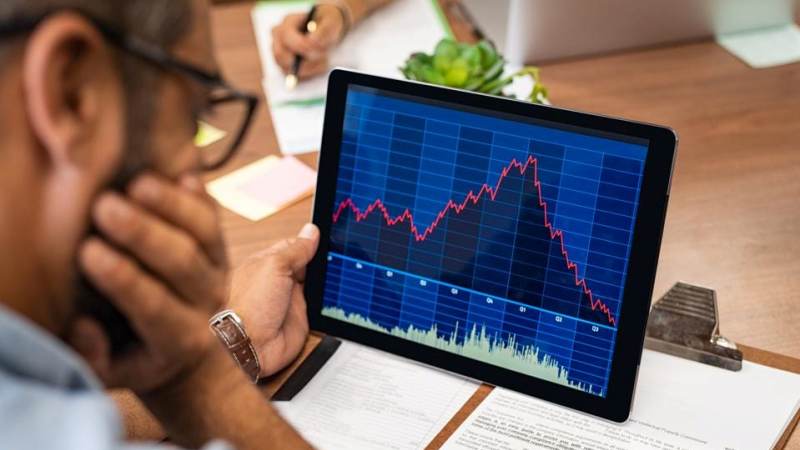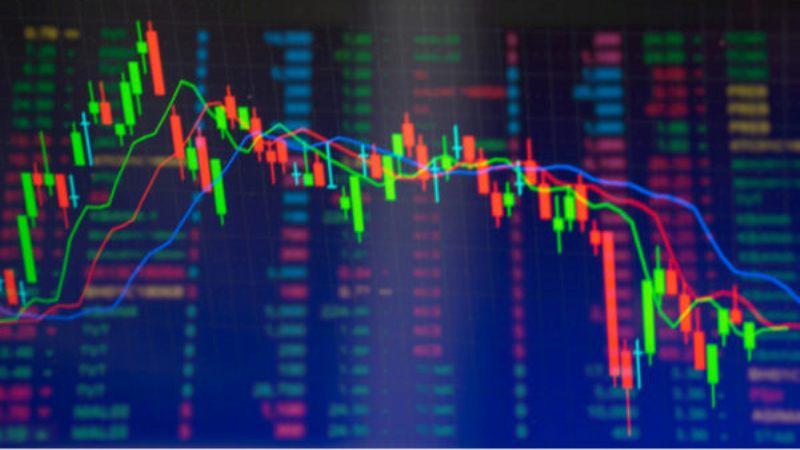
With regards to the fundamental mainstays of monetary wellbeing – acquiring, saving, putting and securing – putting resources into the financial exchange can be the most scary of the pack.
There’s a great deal of befuddling language to get your head around. The securities exchange can be unstable and has inescapable high points and low points. Furthermore, contributing accompanies a specific degree of hazard.
Since you probably won’t be too certain with regards to how the financial exchange functions, you may be putting off contributing. How about we make the prospect of putting resources into the financial exchange less overpowering.
In our securities exchange 101 aide, we’ll assist you with bettering see how it functions so you can settle on the most ideal decisions for you.
What Is The Stock Market?
We should begin with a securities exchange definition, will we?
Basically, the financial exchange is the place where financial backers can purchase and sell protections, or stakes in individual organizations just as trade exchanged assets (ETFs). The market idea is likewise utilized for the exchanging of different things like securities and depositories, yet the financial exchange has the most open perceivability.
Otherwise called a protections trade, the financial exchange is dependent upon unofficial law and has its own arrangement of rules. The New York Stock Exchange (NYSE) and Nasdaq are the world’s greatest stock trades. Trades are the spots and frameworks were stocks are exchanged.
Albeit the NYSE and Nasdaq are the world’s greatest trades and get most of the consideration in the United States, there are other financial exchanges all throughout the planet including the London Stock Exchange, just as Japan, Hong Kong, Shanghai, India, Australia and different areas all through the European Union.
Investigators follow the presentation of the general market utilizing what are called files. A protections market list shows the exhibition of the financial exchange. These lists work by estimating a weighted normal worth of an assortment of protections.
A portion of the major records are the Dow Jones Industrial Average (DJIA), the S&P 500 and the Nasdaq. At the point when a record drops, it implies the normal worth of the relative multitude of stocks in the file is down from the past work day.
On the other hand, when a file is on the ascent, it implies that the normal worth of the multitude of stocks in the list is up from the earlier day. Different trades have lists corresponded with their exhibition also. For instance, the London Stock trade has the Financial Times Stock Exchange 100 (FTSE).
These protections are picked as an example that reflects how the market overall is acting. But since these records incorporate organizations from horde enterprises, they are viewed as strong pointers of how the U.S. economy is doing generally speaking.
How Does The Stock Market Work?
You can consider a securities exchange a protected and managed sales management firm where purchasers and dealers can arrange costs and exchange ventures.
A financial exchange is an organization of trades of sorts, and organizations list shares on a trade. Financial backers then, at that point buy offers and purchase and sell them among each other. A significant number of the financial backers are significant assets controlling heaps of cash, however people can purchase and sell through a specialist like Acorns.
You might’ve watched scenes in motion pictures or on TV shows where purchasers and dealers are on the floor of the New York Stock Exchange intensely hollering, “Purchase, purchase, purchase!” or “Sell, sell, sell!” Whereas generally the financial exchange has been an actual commercial center, for example, the New York Stock Exchange and the American Stock Exchange, nowadays protections are all the more ordinarily exchanged through an assortment of exchanging stages.
Essentially all exchanges these days are done digitally – not face to face.
Albeit many stocks are recorded on the trade, public posting itself isn’t a necessity for stock deals. We’ll go over private stocks and over-the-counter business sectors a bit later on.
Get a $5 Sign Up Bonus for Acorns today!
The Major Stock Exchanges
At the point when you hear “stock trades,” these are the real business sectors where organization shares are exchanged.
In case somebody is alluding to the financial exchange in the U.S., they’re regularly either discussing the NYSE on Wall Street or the Nasdaq (which represents National Association of Securities Dealers Automated Quotations). They may likewise be examining one of the major lists, similar to the Dow Jones Industrial Average or the S&P 500 Index.
The NYSE and Nasdaq are the greatest business sectors as far as market capitalization (which implies the worth of a public corporation), and is determined by increasing the absolute number of offers by its most current offer cost.
The main five securities exchanges on the planet are:
- NYSE
- Nasdaq
- Tokyo Stock Exchange
- Shanghai Stock Exchange
- Hong Kong Stock Exchange
What The Economy Means for The Stock Market
There are many components that influence how the securities exchange is getting along, and regardless of whether it’s going up or down: the political environment, social variables, loan costs, patterns and changes in what financial backers like.
So how does the economy influence the securities exchange?
On the off chance that everybody feels as though the economy will before long be getting ugly, they will in general sell stock since bonds and depositories offer a more secure return. On the other side, when individuals are having a certain and hopeful outlook on the economy, they will in general purchase stock, facing more challenge for more noteworthy prize.
From a significant level methodology, when individuals have a decent outlook on the economy, they will in general purchase more stock. At the point when things are going on the planet cause them to feel uncertain, they will be more moderate, and may incline toward lower-hazard speculations, for example, securities and Treasury bills.
What Are Stocks?
At the most essential level, a stock is basically a portion of possession in an organization or company. There are two kinds of stock: private and public.
Public Stocks
A public partnership is one that issues stock that the overall population can purchase and exchange on financial exchange trades. Maybe than stocks held by those in the organization, these public stocks are claimed by investors who are essential for the overall population.
At the point when you hear an organization opening up to the world, that implies it’s posting on the financial exchange. It does what’s called a first sale of stock (IPO).
The organization that is opening up to the world, alongside a financier that is a speculation bank, will make a particular number of offers accessible at a specific cost. For example, when Beyond Meat (stock image BYND) opened up to the world toward the beginning of May 2019, it was evaluated at $25 an offer with an inferred market valuation of $1.46 billion.
Private Stocks
With regards to private stocks, the overall population doesn’t approach them. These offers are by and large restricted in number. The stock is typically held by few individuals, and they’re not exchanged openly on any trade.
Offers may just be given to representatives and interior financial backers, like supervisors. For instance, the supermarket chain Publix is an exclusive organization. Offers are simply made accessible to its store partners and the governing body.
Kinds Of Public Stocks
When an organization has opened up to the world and individuals have purchased beginning offers, there are a couple of ways you can bring in cash as a financial backer:
Normal Stock
Normal stock is the kind of stock individuals consider when they are alluding to stocks. It’s the most fundamental approach to have responsibility for partnership. At the point when you own a portion of a typical stock, you have a proportionate stake in the organization that relies upon the number of offers you own.
You can bring in cash in one of two different ways:
Through cash profits. These might be presented by organizations when the partnership is beneficial, and pay is more prominent than its costs. At the point when this occurs, an organization can deliver profits to their investors.
Through the market cost of an offer. At the point when the cost goes up, the investor can bring in cash by selling shares.
At the point when you own normal stock, you as a rule have casting a ballot rights. You can decide on who is chosen for an organization’s top managerial staff, among different issues. The number of votes you can project relies upon the number of offers you own. You can cast a ballot either as a substitute or by going to a yearly gathering.
Favored Stock
With favored stock, you get a proper profit for each offer that an organization needs to appropriate before there’s a payout to investors of the normal stock.
In case you’re an investor of a favored stock, you’re ensured a profit however long you hold it. A disadvantage of holding favored stock is that you infrequently get casting a ballot rights.
Note that the profit is paid at a decent rate, and favored stock is a kind of fixed pay. An organization offering favored stock infrequently pays out additional pay from the stock other than the profit. Assuming you need a more solid stream of pay, you may be drawn to favored stock.
Classes Of Stock
At the point when you hear a reference to a Class A stock versus a Class B or Class C stock, it’s alluding to the number of casting a ballot rights an investor has. Investors of a Class A stock have more say than an investor of a Class B stock.
Listen to this: an organization can make various classes of stock, and they can likewise decide how much democratic force you have for every one of the various classes. An organization can likewise decide how much the stock is worth in contrast with its Class A stock, which is the normal stock.
Market Participants
The market members who purchase and sell stocks will rely upon which financial exchange you’re alluding to. There are really three distinct kinds of market on which organizations, financial backers and their dealers can purchase and sell shares. How about we go through the market members in each of these.
Essential Market
The essential market is the place where organizations straightforwardly offer portions of stock to financial backers. This happens when an organization initially opens up to the world in an IPO, yet it additionally could occur if the organization later chooses to collect more cash by making more offers accessible at a given cost in a new round of financing.



